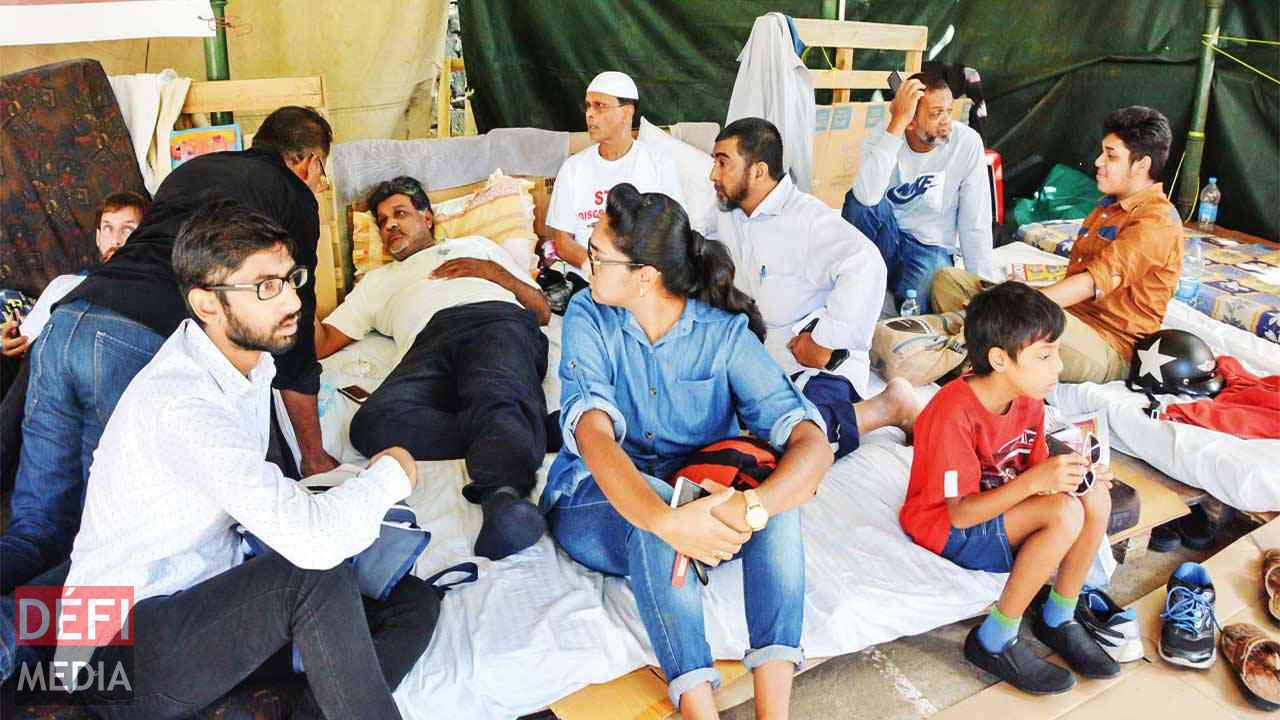
The recent hunger strike of the former BAI policyholders has raised the question whether this form of protest is the last resort. Hunger-strikes have been used throughout the ages in citizen actions, from independence struggle to political actions – India’s freedom fighter Mahatma Gandhi being an example. What is the relevance of this form of action in today’s context? Youth debates the subject this week.
Publicité
 Yaadav Damree: “Hunger strike influences people to raise their voices”
Yaadav Damree: “Hunger strike influences people to raise their voices”
Hunger strike is an act of violence inflicted upon’s one’s own self, believes Yaadav. “Not having a solution to specific situations results into hunger strike. Recently in Mauritius, we have witnessed a few hunger strikes being held at several places. The point was to put pressure on the government to take specific decisions. Hunger strike is definitely not the best solution to solve matters, but sometimes helps in highlighting issues that need to be addressed and taken care of. Authorities cannot remain indifferent when faced with such circumstances.”
For him, hunger strike influences people to raise their voices against all malpractices of the government, and the injustice which happens all around the country. “Though hunger strike is a way to obtain justice, it also civil disobedience. In that case, protestors will need a government that can at least be seen as reasonable and fair. It’s a way for people to rebel against what they perceive as unfair laws or decisions. History has shown that with a justified reason, civil disobedience successfully achieved its goal: The US Civil Rights Movement, Gandhi’s campaigns for independence from the British Empire and the Apartheid Resistance Movement. One has to know where to start the strike and especially the objective has to be justified.”
 Nellina Pillay: “As goal to pressurize the leaders”
Nellina Pillay: “As goal to pressurize the leaders”
Nellina states that most hunger strikers describe their battle as a last resort. “In Mauritius during the recent weeks, a strong debate has emerged as a result of a group of people who went on a hunger strike after being deprived of what they considered as their due. Emanating from this symbolic act of resistance against the leaders of the country is a feeling of déjà vu. Gandhi, who was one among the most eminent freedom fighters in India, has at several points in time used this method to denounce the atrocities which befell the population during the British era.”
She further adds “this method is still used to act as a form of non-violent weapon. It has as goal to pressurize the leaders in a situation where the latter have formerly neglected their grievances. The role of a leader in this case, is to lead, that is, to guide citizens into taking fair and just decisions that will be beneficial to them as well as to others. The sole idea of giving up on food already reflects an ailing society where the rights of people are being trampled upon.”
“Should those who have worked so hard for so many years, waking up before dawn, often sacrificing their health in order to save some money for a better life be penalised? True enough, there are laws and procedures in a society that need to be followed in order to keep stability, but does the life of a human being who has toiled so hard for his family and for his last days matter less than those man-made protocols? Did those hunger strikers need to abandon food to be heard and understood? No blame game intended, but if a human being has to resort to hunger strikes, we as humans, we are failing,” she questions.

 Yasveer Bholah: “Hunger strikes are an easy way to gain the attention”
Yasveer Bholah: “Hunger strikes are an easy way to gain the attention”
Yasveer argues that strikes are a means to raise awareness about something wrong and to put pressure on the authorities so as to quickly find a solution. “A hunger strike signals that the strikers are helpless and they are putting their utmost wealth, that is their health, at stake to show to the world that their issues are genuine and need consideration. We live in a world where everyone is stuck in his own routine and the society as a whole functions as a system which is organised.”
He further adds : “As we are witnessing currently, the victims of the Super Cash Back are urging the government to repay them but it is not an easy decision to squander public funds for a scheme that was offered by a private company. A hunger strike is the ultimate solution for normal people who do not have the means or the intention to overhaul the functioning of authorities to get justice. The issues they are facing are harmful and their only wish is to get their problems solved.”
Nevertheless, hunger strikes are an easy way to gain the attention of the media and the sympathy of the public, says the young man. “People tend to oppose change and such a step can hamper governmental agendas and prevent visions of the country’s future from materialising. Hunger strikes force authorities to give in to demands of some people, who are sometimes selfish in their approach to the state aiming for national improvement. Hunger strikes have historically been carried out for the right causes and it is the ultimate solution for those who are not able to make their voices heard. It should continue as a sacred step and not one that everyone adopts for every little issue.”
 Faizal Auckburally:“People have the right to protest”
Faizal Auckburally:“People have the right to protest”
Faizal explains that the PM mentioned that hunger strike is not the solution for the government to function, but however, it did made the PM listen and consider the reason of this recent strike. “In a democracy people have the right to go on strike to demand their rights, if they are doing so in a non violent method. Had these issues been in other countries of Europe and the USA, all would have been in streets destroying everything. However, hunger strike affects the health of the people, but still it does succeed in making politicians listen to these people. People have the right to protest through a hunger strike as long as it is better than violence and it does not kill other innocent people, proving that it is more effective.”
 Nitesh Peeroo: “Hunger strike is an ultimate weapon”
Nitesh Peeroo: “Hunger strike is an ultimate weapon”
The history of hunger strike has become a powerful medium of struggle or we can say another form of blackmail, says Nitesh. “While on hunger strike, one has a lot of time to study the theoretical basis and practical implications. As it goes by saying- History is in itself a guide! In India, hunger strike is an ancient practice, since it appears in the Ayodhya Kanda (the second book of the Ramayana) and in pre-Christian Ireland; hunger strike was used as a method of protesting injustice where it was known as Troscadh or Cealachan.”
He highlights that this action was part of a larger political strategy for independence. “The theoretical basis of the hunger strike is that every hunger strike is important, even if poorly planned, generally misunderstood, or plain misguided. Because each one contributes to the way the masses see hunger strikes, understand this particular means of struggle and to what extent they are prepared to give support. The hunger strike is an ultimate weapon, when there is total deadlock in negotiations.”
He adds that “the real aim is to increase the political price that the decision-makers will pay, if they persist in maintaining the deadlock; the real aim is to alter the balance forces in such a way that negotiations can resume, but on a different footing; in favour of the demands of the whole movement. To achieve this aim, the action needs to have the sort of credibility that is beyond any questioning. The nature of the strike needs to be widely known, in terms of what exactly the strikers are depriving themselves of: food, water or liquids.”

Notre service WhatsApp. Vous êtes témoins d`un événement d`actualité ou d`une scène insolite? Envoyez-nous vos photos ou vidéos sur le 5 259 82 00 !


























![[Info Soirée] : « si bann zenn donn nou koudme nou kapav gayn konseye ki eli »](https://defimedia.info/sites/default/files/styles/square_thumbnail/public/whatsapp_image_2025-01-18_at_20.35.09.jpeg?itok=0BisjGbp)





